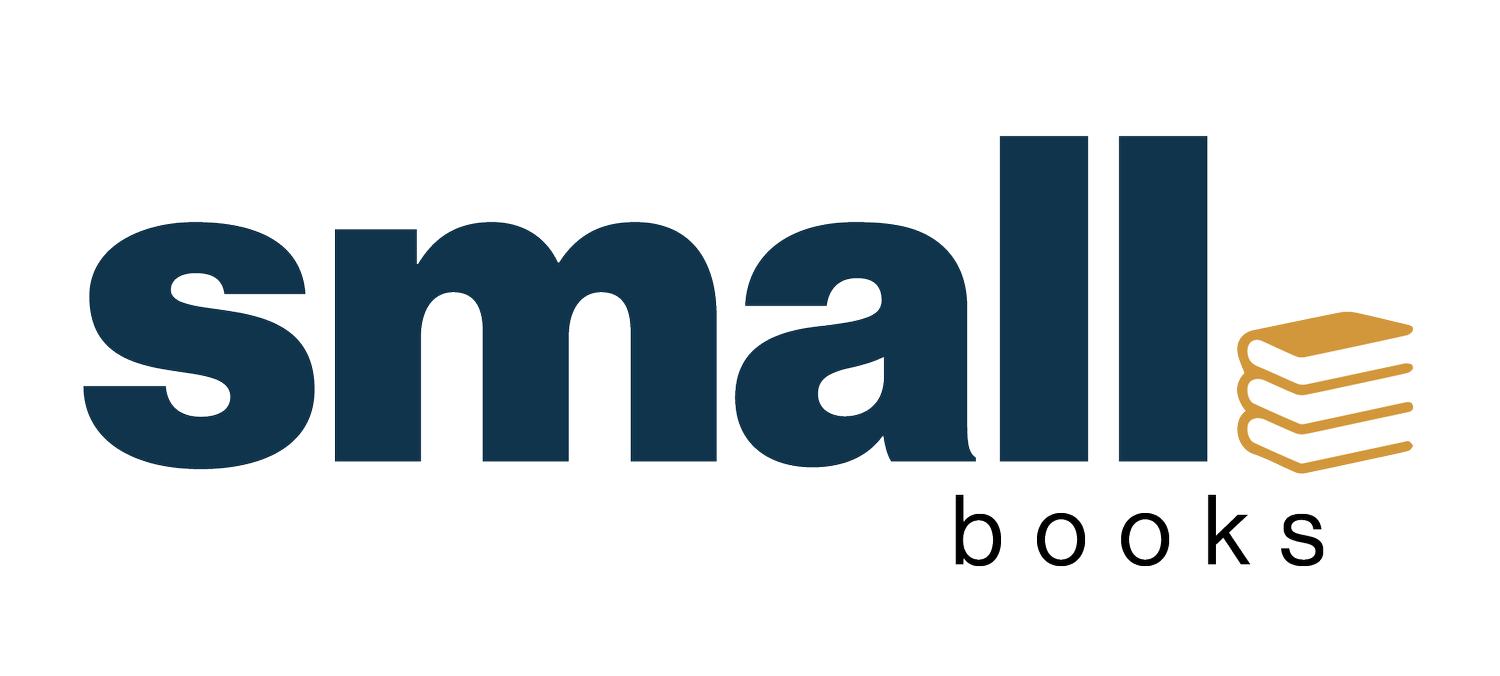Canadian small business grants: Tools and tips to get funding
Standard government small business loans or capital from banks, angel investors, and VC firms are often the funding channels of choice for Canadian entrepreneurs. However, if you’re willing to invest the time, you may be able to apply for several Canadian small business non-repayable grants.
Keep in mind, small business grants are not free money. However, they don’t typically require repayment either. Primarily, they’re varying amounts of early-stage small business funding—awarded to entrepreneurs seeking to start or cultivate projects for specific purposes. The objective of said projects is to create value for grantees such as governments, nonprofits, and corporations.
Put another way; grant funding is a source of capital for small businesses that don’t require you to give up a stake in your company or accumulate new debt.
Here are a few things to consider before you apply for a grant:
They’re restrictive
Government grants are for specific purposes, with strict eligibility requirements that outline what costs can be covered.
Applications require time and effort
The grant application process takes time and is rigid. You need to be extremely thorough.
Response times can be slow
You might wait weeks or months to hear back about whether you’re approved for a government grant.
It’s highly competitive
Many other highly qualified candidates will submit their best ideas and have perfected how to apply for small business grants.
There are strings attached
Funds awarded often come with a contingency to get matching funds or a loan to supplement the grant. The government or a corporate grant administrator may ask that you submit extra paperwork, like monthly or quarterly progress reports.
Still interested? If so read on to learn how to apply:
Federal small business and startup grants
Growth grants help governments to fuel innovation through startup businesses.
The Canadian federal grant-driven approach to problem-solving means grants usually fall into one of four categories:
Research and development (to encourage new innovation)
Exporting grants for selling internationally
Nonprofit or local government work
Wage assistance programs (for increased job creation)
Research and development
Many planned Canadian government grants are for small businesses support, research and development initiatives. From climate change to healthcare, the government needs private companies and organizations to conduct research and develop products, services, and programs to address the problems in any given area.
Review the national grant programs below to learn how the federal government engages small businesses to effectively research problems and create appropriate solutions:
1. Canada Media Fund (CMF): Experimental Stream
What is it?
Funding for the CMF Experimental Stream’s Innovation Program goes to businesses developing Canadian interactive digital media content and software applications that are considered “innovative and leading-edge.”
A jury awards funds through a selective process based on an evaluation grid. There are four essential assessment criteria that determine if you get funding:
Experience and past achievements of the production/development team
Innovation and advancement of the project
The business plan, including the viability of the project and the financial stability of the applicant
The distribution strategy
Applications are not evaluated for development and marketing support.
How much does it award?
If your application is successful, you can receive funding in an amount appropriate to the needs of your project, which is “subject to a Maximum Contribution of 75% of your project’s Eligible Costs."
Eligible Projects for this limited access are subject to an overall Project Maximum Contribution cap of $1.5M.
Who can apply?
An eligible applicant to the CMF is either:
1) A for-profit, taxable Canadian corporation, as per the Income Tax Act (Canada). The company must be Canadian-controlled as determined by sections 26 to 28 of the Investment Canada Act, and have its head office based in Canada.
Not-for-profit corporations are not eligible Applicants to the CMF. However, coproductions or partnerships between for-profit and not-for-profit corporations may be allowed where the nonprofit corporation holds a minority interest in the project. Note: The CMF will only contribute to the “Eligible Costs related to the for-profit corporation.”
2) A Canadian Broadcaster
Eligible applicants “must own and control all the rights necessary to produce and exploit the project that is the subject of the application at every stage of the project’s life-cycle, including Prototyping.”
How to apply?
Review the application guidelines and supporting documents that walk you through all of the requirements and appropriate information required.
2. Innovative Solutions Canada (ISC)
What is it?
Innovative Solutions Canada (ISC) is a program that supports the scale-up and growth of Canada’s innovators and entrepreneurs, whereby the federal government acts as your first customer.
Twenty participating federal departments and agencies set aside a portion of funding to support the creation of innovative solutions by Canadian small businesses.
By funding proposed solutions, the program is supporting the development of early-stage, pre-commercial innovations. ISC program objectives include:
Fuel development and adoption of technological innovation in Canada to accelerate commercialization.
Grow Canadian companies through direct funding to support early-stage, pre-commercial research and development, late-stage prototypes.
Encourage procurement from companies led by under-represented groups, such as women, Indigenous, youth, disabled individuals, LGBTQ+, and others.
Foster greater industry-research collaboration by generating initiatives that address key Government of Canada priorities.
Provide federal departments and agencies with opportunities to develop new capabilities to meet their research and development needs.
How much does it award?
If selected, your idea could receive up to $150,000 in support to develop a proof of concept.
If your proof of concept is approved, you could receive up to $1 million in support to develop a prototype.
If your developed innovation solves the Federal Government’s challenge, they could be your first buyer.
Who can apply?
Your small business must meet all of the following criteria to submit a solution proposal:
A for-profit business
Incorporated in Canada (federally or provincially)
Has 499 or fewer full-time equivalent (FTE) workers
Have research and development activities that take place in Canada
At least 50% or more of your business’ annual wages, salaries, and fees are currently paid to employees and contractors who spend the majority of their time working in Canada
A minimum of 50% of FTE employees have Canada as their ordinary place of work
A baseline of 50% or more of your senior executives (Vice President and above) have Canada as their principal residence
Note: Calculations must take into account and include affiliated businesses, such as parent companies and subsidiaries, that are either in or outside of Canada.
How to apply?
Follow all of the program steps outlined on the ISC website. Stay up-to-date on current challenges as they are subject to change.
3. SDTC Tech Fund
What is it?
The Sustainable Development Technology Fund (SDTC) supports pre-commercial projects with “the potential to demonstrate significant and quantifiable environmental and economic benefits in one or more of the following areas: climate change, clean air, clean water, and clean soil.”
How much does it award?
SDTC provides:
On average, 33% (up to 40%) of your eligible project costs.
The average contribution is $3 million, with funds disbursed in five years or less.
25% of the eligible costs must be funded through private sector contributions (including in-kind).
Funding from all levels of government must not surpass 75% of eligible costs.
At least 50% of eligible project costs must be incurred in Canada.
Who can apply?
To be eligible for funding, applicants must:
Be a Canadian company developing a new and unique technology with significant and quantifiable environmental benefits to provide a significant retained Canadian benefit following the execution of your project.
Have a defined project and seek to demonstrate a pre-commercial technology.
Have a strong end-user, value proposition, and can validate the market and commercialization potential of your technology.
Form a consortium with at least one other partner. It’s recommended that you seek partners who’re either end-users or can validate the need and market for your technology.
How to apply?
Visit SDTC’s application portal.
Exporting grants for selling internationally
A significant challenge for Canadian small businesses and startups is international expansion and export market access. The federal government has, therefore, developed programs and grants that are available to help small businesses to export out of the country.
4. CanExport SMEs
What is it?
CanExport provides financial assistance to small and medium-sized enterprises (SMEs) registered in Canada to help develop export opportunities for your product or service in new international markets. Funds are delivered by the Trade Commissioner Service (TCS) of Global Affairs Canada, in partnership with the National Research Council of Canada Industrial Research Assistance Program (NRC-IRAP).
How much does it award?
The CanExport SMEs program requires applicants to submit a detailed budget for your project, for which expenses total between $20,000 and $100,000. The program reimburses up to 50% of eligible costs to offer between $10,000 and $50,000 in funding per project.
Companies participating in trade missions organized by Global Affairs Canada for groups under-represented in international trade (e.g., women, LGBTQ2, and Indigenous exporters) may exceptionally submit a project of less than $20,000 for consideration.
An applicant can only have one active CanExport SMEs project at any given time but may apply multiple times contingent on the total funding received not exceeding $99,999 per government fiscal year (April 1 to March 31 of the following calendar year). A group of related companies (i.e., parent company, subsidiaries, sister companies, and affiliates) cannot receive more than $200,000 in funding in one single fiscal year.
Who can apply?
To be considered for funding, you must run an incorporated, or limited liability partnership (LLP) for-profit company, and have a CRA business number.
Likewise, you must have less than 500 full-time equivalents (FTE) employees, and between $100,000 and $100 million in annual revenue declared in Canada during your last complete tax reporting year (or during the previous 12 months for monthly and quarterly filers).
If your business doesn’t have a CRA business number because you’re registered on First Nations reserve lands, you may request an exemption by submitting a request to the Director-General (Global Affairs Canada) in charge of the CanExport SMEs program: CanExportSMEs@international.gc.ca
How to apply?
You can apply for one project at a time via the online platform. It is recommended to submit your application at least 60 business days before the start date of the first proposed activity.
5. Canadian Digital Media Network Soft Landing program
What is it?
The CDMN Soft Landing program offers qualified, mature technology startups and scale-ups exposure to business opportunities outside of Canada. Companies can use this program to “open new markets, close international sales, secure investment, and connect with new partners abroad.”
How much does it award?
Successful candidates will receive up to $4,000 CAD in reimbursable expenses to help offset transportation and accommodation costs. If you land at a co-working space, accelerator or incubator, you may also have the costs associated with workspace covered for up to three months.
Who can apply?
To qualify for a loan you you must:
Be a Canadian tech-driven company (established or scale-up) based in Canada
Have a product that has launched and generated $2,500 - $3,000,000 in revenue in the past 12 months
Offering your own proprietary technology or service using your own intellectual property
Have a clearly defined intention for use of the funds, including the project(s) to be undertaken and the necessary activities and expense breakdown required to achieve success.
How to apply?
The Soft Landing program is managed through the CDMN hub network. However, they encourage that you work with your local hub when applying to the program. You’re still welcome to apply if you reside in a region without a CDMN hub partner.
You’ll be evaluated based on criteria, including your business’ revenue generation over the last 12 months, the current state of your company and product, and the viability of your stated goals and objectives.
For further information, you can contact Brett McNeil, Coordinator, Network Relations & Programs, info@cdmn.ca.
Nonprofit grants
Most nonprofits’ goals align with federal government goals because they’re issue-driven. Still, it’s a challenge for nonprofits to raise money from outside investors and banks.
If you run a nonprofit, you may be eligible to apply for government grants or other low-cost funding opportunities through multiple organizations across Canada that provide this type of funding.
You can also visit Charity Village, which outlines many funding options for non-profits.
The examples below highlight how the government supports worthy nonprofit causes, even though they don’t generate a profitable business model.
6. Environment and Climate Change funding programs
Provides funding to individuals and nonprofit organizations interested in participating in environmental assessments. Funding is available for several projects, related to:
Climate Action and Awareness Fund
Output-Based Pricing Systems Proceeds Fund
Low Carbon Economy Fund
Nature Smart Climate Solutions Fund
Ecological Gifts Program
Environmental Damages Fund
Indigenous Guardians Pilot Program
Increasing Knowledge on Plastic Pollution Initiative
Zero Plastic Waste Initiative
Aboriginal Fund for Species at Risk
Community Nominated Priority Places for Species at Risk
Habitat Stewardship Program
Critical Habitat Interdepartmental Program
EcoAction Community Funding Program
Qualifications and funding amounts vary by program. You can learn more about all of the programs and how to apply on the ECC website.
7. Canadian Institutes of Health Research (CIHR)
CIHR is a federal agency that invests $1 billion annually to support health research in Canada. The site explains your project funding requirements across four pillars of health research: biomedical, clinical, health systems services, and population health.
Additionally, it provides a list of current funding opportunities.
Review the CIHR general applications process on the website for more details.
8. Canada Council for the Arts
The Canada Council for the Arts distributes grants to nonprofit arts organizations all over Canada, in addition to individual artists.
In 2020-21, the Canada Council gave grants to over 7,073 Canadian artists in the amount of $315.4M.
The council runs several different grant programs each year. Grant types include funding for individual artists and organizations across a variety of disciplines, both at home and abroad.
If you run an arts-based organization, check the site regularly for opportunities and deadlines.
Wage assistance programs
One of the most significant barriers to small business growth is the high cost of labor. The time commitment and expense of onboarding new employees can go well beyond a small business’ budget and hold back entry into new markets.
To accelerate growth and reduce unemployment, federal and provincial governments offer incentives for hiring to ease a cash-strapped company into a round of hiring.
Grants are often targeted toward a demographic the government feels needs help. Some of the most commonly used grants are:
9. Canada-Ontario job grant
What is it?
The Canada-Ontario Job Grant provides direct financial support to individual employers or employer groups, of all business sizes, who want to invest in short-term training for their existing and new employees.
How much does it award?
Covers up to two-thirds (maximum $10,000) of the cost of third-party training for new employees who need vocational education to work with you. An eligible, third-party trainer must deliver training. Small employers with less than 100 employees need to contribute 1/6 of training costs.
Who can apply?
To be eligible for the program, your Ontario-licensed business has to meet all of the requirements outlined in the application website.
How to apply?
Follow all of the steps in the online application form.
10. Canada Summer Jobs
What is it?
The Canada Summer Jobs program provides wage subsidies to employers from not-for-profit organizations, the public sector, and private sector organizations with 50 or fewer full-time employees, to create quality summer work experiences for young people aged 15 to 30 years.
How much is awarded?
The amount awarded is not stated. You must first register online with the government’s Grants and Contributions Online Services (GCOS) to learn more.
Who can apply?
There are 15 eligibility requirements that your business must meet for your project to be considered. You can find them in the application guidelines document when applications are open.
How to apply
You can apply online during the application period. The link will be updated when the next round of applications are open.
Before you apply
Once you find a startup business grant that meets your business needs, make sure to read through the fine print in the application guidelines.
An excellent first step in applying for funding is to contact the local government representative specified in the grant documents. They can verify whether your company meets the requirements for candidacy and provide up-to-date information about the funding opportunity.
You may need to submit a statement of intent to the funding body. It’s a short document that outlines what your company does and why you think you should receive funding. Your statement helps the funding body confirm whether you should apply for the grant.
The funding body may let you know you’re not the best candidate based on your statement, which can save you time so you can apply for something else.
Should you hire a grant writer?
Knowing how to apply for a government or corporate business grant is a special skill that can be developed over time. The application process is often lengthy and technical, requiring you to provide detailed, persuasive presentations of data and business goals.
A grant writer’s job is to be an expert on how to get a grant and to complete your desired application on time. They must include all critical information to ensure it meets all stated requirements as well.
Of course, that writer’s time is valuable. So, we’ve outlined some pros and cons to determine whether you should invest in their help.
Pros and cons
The advantages of enlisting the services of a grant writer, rather than doing the work of applying for a grant on your own, include:
They’ll get the job done correctly the first time—there’s no learning curve on their end
You’ll meet the application deadline, even if you’re too busy running your business
The grant writer may notice things about your company to include in the grant application that you might overlook
Using an experienced grant writer, who knows how to craft a good proposal, can substantially improve your chances of obtaining a grant
Of course, the cost is the most significant disadvantage of hiring a professional grant writer. They may charge up to several thousand dollars for writing a major grant funding proposal, and there’s still no guarantee your company will be awarded the grant.
Funding your small business growth
The corporate and government business grants highlighted above are an introduction to the types of small business funding available in Canada. There are likely more that are relevant to your specific industry or business objectives. If you can locate a grant that fits your business, it can be a great alternative to raising capital through investors, personal debt, a business loan, or business credit.
If your business includes job creation, social enterprise, or technology innovation element, Canadian grant funds are looking to support you. Your formal application should, therefore, provide detailed information about your business model, current financial status (including financial statements), and business history.
For more grant options, search the Government of Canada website that are currently available. You can also search by category to find government funding options that are right for your business.
Are you starting a new small business or looking to fund your growing business?
How Small-Books can help
We're an online bookkeeping service powered by real humans. Small-Books gives you a dedicated bookkeeper at a price you can afford! We’re here to take the guesswork out of running your own business—for good. Your bookkeeping team imports bank statements, categorizes transactions, and prepares financial statements every month. Your numbers tell a story, and Small-Books is here to help you see the whole picture!



